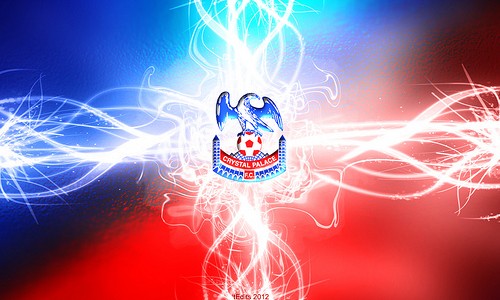Campana can be the jewel in the Palace crown
Much of the ubiquitous rumour and speculation surrounding the summer transfer window has focused on the potential departures of Gareth Bale and Luis Suarez from Tottenham Hotspur and Liverpool respectively.
But whilst the footballing world salivates over Real Madrid’s proposed £86 million bid for a winger linked with then Alex McLeish’s Birmingham City three years ago, one gem of a signing has slipped under the radar.
That is newly promoted Crystal Palace’s acquisition of Jose Campana. The 20-year-old defensive midfielder, signed for £1.75m from Sevilla, could turn out to be one of the most astute captures of the summer.
It would be foolish not to reaffirm Palace’s current status as firm favourites to do what they do best at Premier League level, and suffer instant relegation.
The top flight’s quintessential yo-yo club, Palace have spiralled straight back into the second tier after each of their previous four promotions.
This season is no different. The odds are once again stacked against them, particularly without the invention of winger Wilfried Zaha, who has joined Manchester United.
However, in securing the signature of Campana, manager Ian Holloway has moved deftly where his fellow relegation rivals have acted in a more pedestrian fashion.
For example, Danish striker Andreas Cornelius has just 46 career appearances to his name, yet Cardiff City manager Malky Mackay signed him for a club record fee of just over £7.6 million from FC Copenhagen – more than Palace’s entire net transfer spend thus far.
Meanwhile Steve Bruce at Hull City has favoured quantity over genuine quality, with Maynor Figueroa, Curtis Davies, and the baffling loan signing of Danny Graham – he of no goals since joining parent club Sunderland from Swansea City for £5m in January – amongst the summer arrivals.
The term ‘footballing bargain’ is overused in an age of transfer fee inflation, but particularly in a long-term context, and set against the mediocrity of their rivals’ purchases, Campana is exactly that.
In securing the signature of Campana, manager Ian Holloway has moved deftly where his fellow relegation rivals have acted in a more pedestrian fashion
For relative peanuts Palace have landed a player with a technical ability and poise far superior to the more experienced players who started the play-off final victory over Watford in May, and who may well line up alongside Campana in the upcoming campaign.
Selhurst Park regulars will not have been used to a player of this sort in previous battles against relegation from the Premier League, and they will be excited by Campana’s talent.
He is a typical Spanish midfielder, whose qualities are to keep the ball and distributing it effectively. Simple attributes, perhaps, but Palace’s aforementioned inability to survive at the summit of English football since the Premier League’s inception in 1992 suggests a crudeness and lack of polish among more technically gifted rivals.
In signing Campana, Holloway seems to be initiating a move away from the long-ball philosophy pioneered by the likes of Iain Dowie, the club’s manager in 2004 when they were demoted on the final day of the Premier League season.
During his time at the Estadio Ramon Sanchez Pizjuan, Campana featured in 20 first-team matches alongside two of Manchester City’s summer signings, Jesus Navas and Alvaro Negredo.
It goes without saying, then, that the Spaniard has enjoyed a very different footballing education to the vast majority of his new colleagues.
For relative peanuts Palace have landed a player with a technical ability and poise far superior to the more experienced players who started the play-off final victory over Watford in May
Having first appeared in Sevilla as an 18-year-old in 2011, he played 15 times in his first full season, appearing in an unbeaten side for his first eight games (including a draw at the Nou Camp, when Barcelona were arguably at their most formidable).
Last year Campana, likened to Sergio Busquets by critics for his sharp reading of the game, captained Spain’s U-19 side to victory in the European Championships held in Estonia.
His last club season was one of frustration as he was sidelined with injury, but he recovered in time to again captain his country as he led the Spanish U-20 team in this summer’s World Cup in Turkey, where they reached the quarter-finals before losing to Uruguay.
Campana has captained his country at two major tournaments for a reason: he has been earmarked as a future leader by a country brimming with talent and promise. In this light, his acquisition is a majestic coup.
Although the language barrier and the physicality of the Premier League could initially prove troublesome, Campana’s maturity on the ball means that moments of magic at the South London club will probably revolve around his influence.
Crystal Palace fans should enjoy watching the precocious Spaniard while they can: should the Eagles lose their place in the top flight once again, it is highly unlikely that this future star will fall with them.

Comments (1)